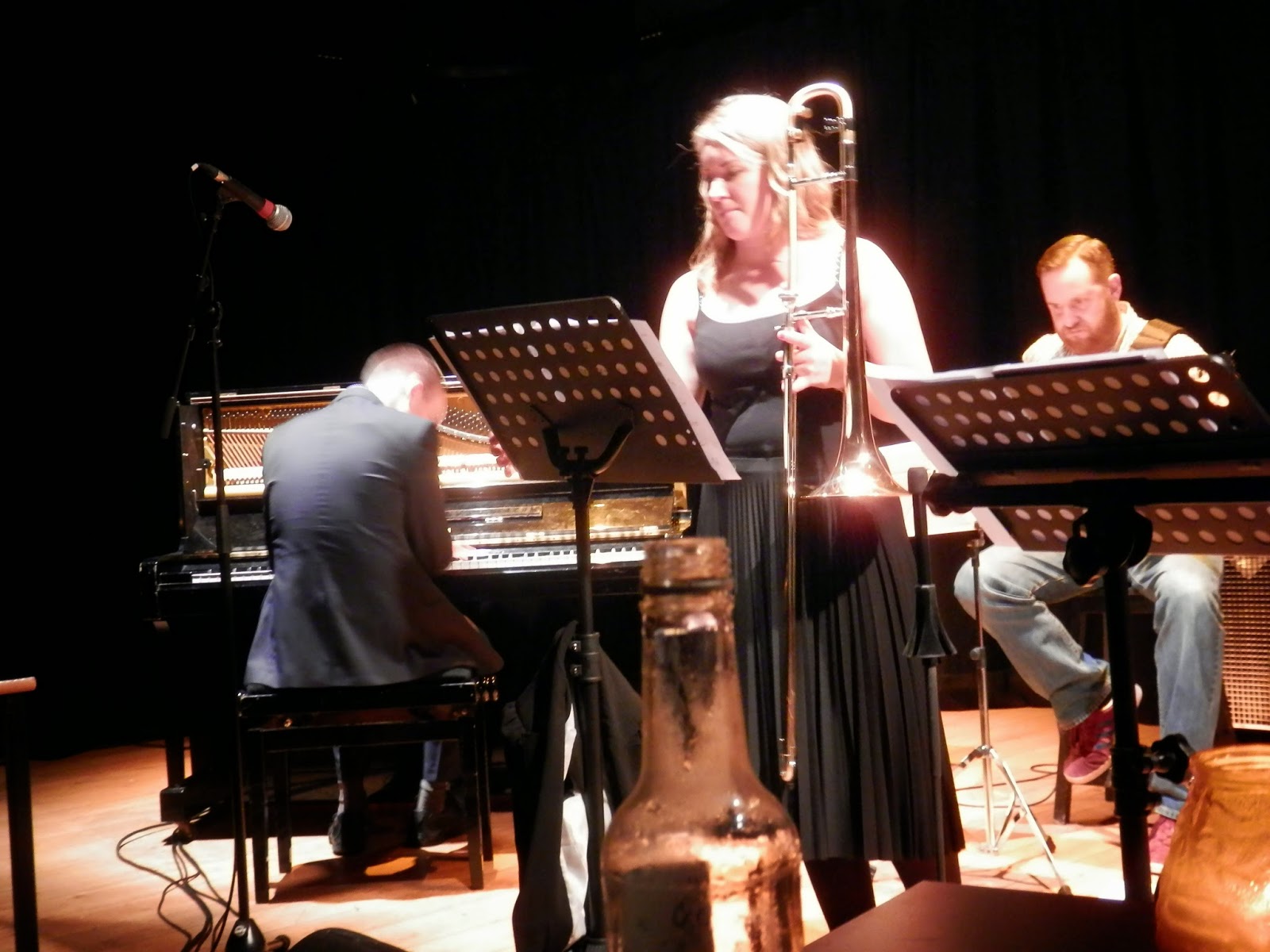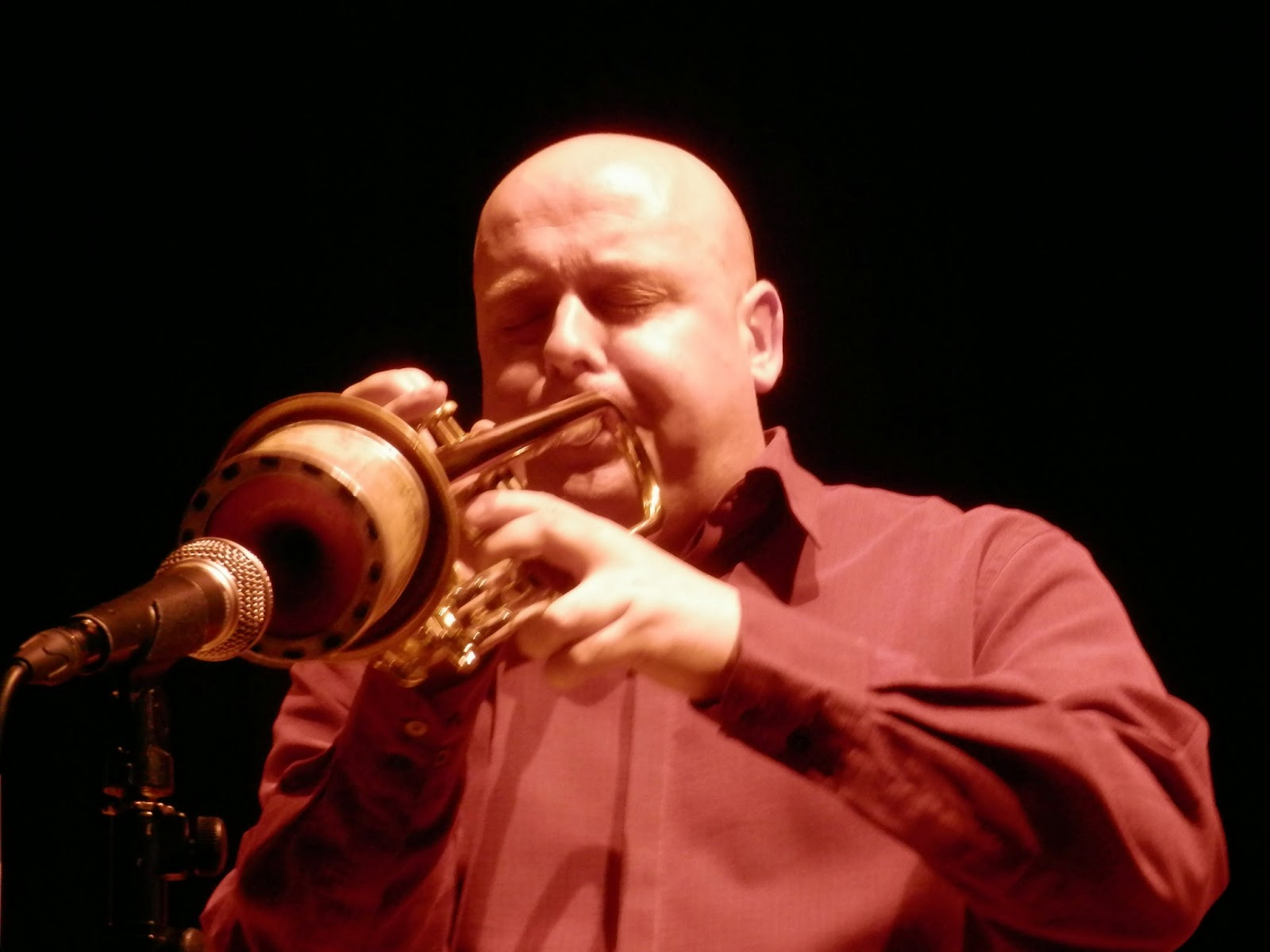
Occasionally one plays an album for
the very first time and is captivated by each and every track on that first
exposure. What is so arresting about “There Will Be Time” is that the tunes instantaneously
lodge themselves in the listener’s imagination. There are very few arrangers
and composers capable of achieving this, but, it appears, Paul Edis is more than competent. After studying in London Paul
returned to his home here in the North East of England, and at only 27 years of
age, has become an established figure in the jazz scene. Guest soloists along
the way have included Tim Garland, Alan Barnes, Julien Siegel and Iain Ballamy,
and, indeed, this release has been included in the 2012 Jazzwise magazine Album
of the Year. The titles themselves indicate a certain tongue in cheek approach
as the album opens with “Administrate This!”, an almost New Orleans flavoured
introduction which features authoritative soloing on tenor and trumpet. “Re: Vamp” is
less strident than its predecessor and features delightfully subtle piano lines,
whilst “I Wish I Was a Monk” (not surprisingly) and “Sharp 9/8” give a
compositional nod to that great jazz pianist referenced in the title. The
cheeky stop start introduction on “I Wish I Was a Monk” which eventually gives
way to idiosyncratic tenor and piano phrases could easily have been lifted directly
from the great Thelonious himself. The mood alters slightly as the bass, drums
and trombone take a funky lead on “Angular”. By now the listener may appreciate
the smogersboard of influences that have been incorporated into “There Will Be
Time”. The title track, “Echoes” and “Elegy” could easily have been mistaken
for an ECM label release in the way they fuse classical mood and structure
around elusive piano and sombre bass and brass. This is most certainly music to
consider ones past, present and future. “Hey There You Hosers” has a relaxed grace
featuring radiant saxophone and trumpet solos, whilst “Blues for Dad” is both joyous
and upbeat, featuring some left field bowed bass and scat like vocals. Another
tongue in cheek title “Ravelations” is a jazz meets classical hybrid again
displaying the breadth of influences employed. The album closes with “Up Late”
which provides a further glorious vehicle for exuberant brass soloing.
The playing throughout is imaginative and enthusiastic,
and could be roughly categorised as “post-bop”. If, however, categories are of
little interest, “There Will Be Time” has tight, memorable compositions from
beginning to end. This sextet release is Edis’ debut as a leader and features
Paul on piano, Graham Hardy on trumpet and flugelhorn, Graeme B Wilson on
saxophone, Chris Hibbard on trombone, Mick Shoulder on bass and Adam Sinclair
on percussion, and has been described as evocative of Art Blakey’s Jazz Messengers.
This is undoubtedly not too strong a depiction,
and gives the new listener an idea of the benchmark of musicianship on display.










